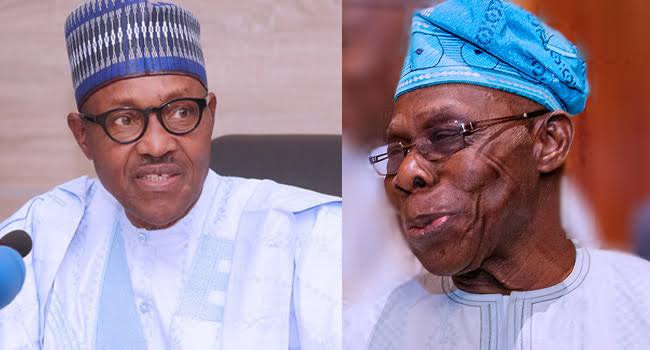Former Nigerian Presidents, Olusegun Obasanjo and Muhammadu Buhari are appearing before the International Chamber of Commerce (ICC) in Paris to provide testimony in a high-stakes $2.3 billion arbitration case involving Sunrise Power and Transmission Company Ltd. The legal dispute centers on alleged breaches of contract by the Nigerian government concerning the $6 billion Mambilla Hydropower Project, a 3,050-megawatt power plant planned for Taraba State.
The project, initially agreed upon in 2003, has faced years of delays and legal complications. Sunrise Power, the plaintiff, alleges that the Nigerian government violated its contractual commitments and is seeking substantial compensation. The company initially agreed to a settlement of $200 million in 2020 but later increased its demand to $400 million, citing further grievances over unfulfilled obligations.
Reports of pressure on prominent Nigerians to testify were dismissed by a presidential spokesman, who emphasized that the participation of both former leaders in the Paris proceedings was entirely voluntary. Sources close to the matter confirmed that Obasanjo and Buhari were in Paris for the arbitration.
Former President Olusegun Obasanjo, who served when the agreement with Sunrise Power was signed in 2003, has raised questions about the legitimacy of the original contract. He alleged that the then-Minister of Power and Steel, Olu Agunloye, executed the agreement without his authorization. “The actions of the minister were not approved by my office,” Obasanjo reportedly stated, questioning the basis of the arbitration claim.
Former President Muhammadu Buhari, who oversaw Nigeria’s government during the arbitration’s escalation, testified that he did not authorize any financial settlement with Sunrise Power. He also expressed concern about the broader implications of unresolved legal disputes involving government contracts. “Cases like this not only strain our financial resources but also jeopardize critical infrastructure projects vital to national development,” Buhari reportedly said.
The Mambilla Hydropower Project has long been touted as a transformative initiative for Nigeria’s energy sector, with the potential to significantly boost electricity generation. However, the legal wrangling has delayed progress for nearly two decades, casting doubt on the project’s future.
Observers note that the arbitration outcome could have far-reaching implications for Nigeria’s international reputation and ability to attract foreign investment. The case also highlights persistent challenges in the governance of large-scale infrastructure projects.
The ICC’s decision will likely shape the trajectory of the Mambilla Hydropower Project and the Nigerian government’s handling of similar disputes in the future. Both Sunrise Power and the Nigerian government await the ruling, which could either pave the way for resolution or deepen the stalemate over one of Africa’s most ambitious energy projects.
